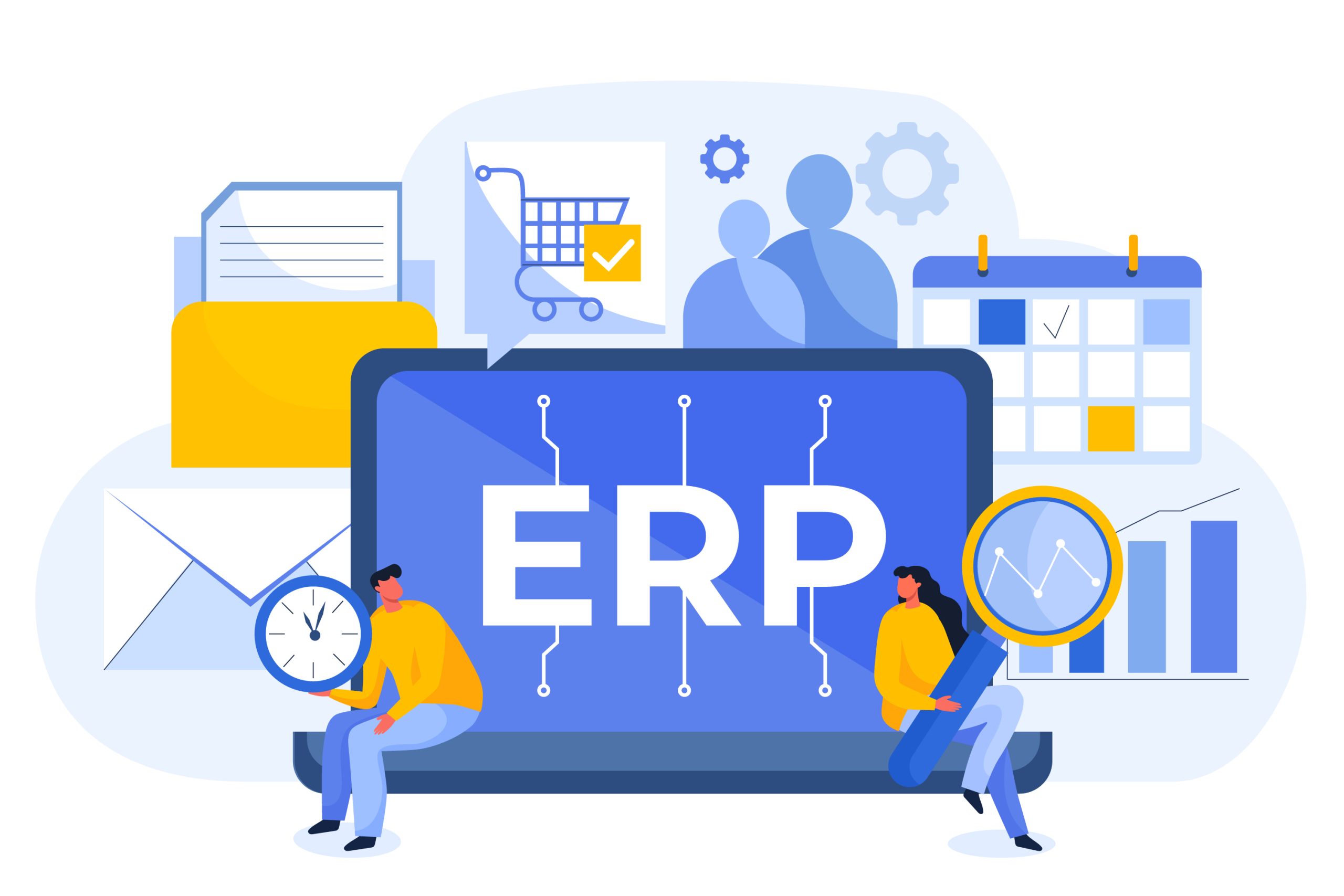
Automating HR Processes with ERP HR Module
Latest ERP systems are contemporary software solutions that integrate various business processes into a single unified system. A primary module in many ERP platforms is the human resources (HR) component, which simplifies and connects HR tasks. ERP HR module offers a lot of automatic features and benefits for running a business’s workforce more resourcefully.
Simplifying HR Administration through ERP HR Module:
ERP HR module simplifies HR administration. Previously, all HR processes were handled by humans but now an ERP system integrates all the functions like staff information, attendance tracking, and payroll management into a single database. This centralization of data makes accessing and managing employee records much easier.
Some common administrative tasks made simpler with an ERP HR module include:
- Maintaining employee master data records with information like contact details, positions, salaries, and employment history.
- Recording and approving leave and absence requests.
- Submitting and processing payroll based on attendance, overtime, and shift data.
- Posting available job openings and screening applicants.
- Scheduling interviews and tracking hiring requisitions.
Enhancing Workforce Analytics:
However, ERP HR modules enable better workforce analytics. Managers can easily generate real-time reports on a wide range of HR metrics to gain accurate insights.
Some examples of the analytics an ERP system provides include:
- Employee turnover rates: useful for assessing retention issues.
- Training expenditures by department: helps track and optimize learning budgets.
- Open requisitions by job type: indicates recruitment and talent needs.
- Employee performance ratings: helps identify high and low performers.
- Absenteeism rates by office location: flags potential engagement issues.
Access to these types of workforce analytics empowers leadership to make more data-driven decisions on HR strategy.
Boosting HR Service Delivery:
ERP HR modules also improve the delivery of HR services across an organization through self-service. Instead of having to consult HR managers for basic queries, employees and managers can access a self-service HR portal.
Examples of self-service functions enabled by ERP systems are:
- Employees can view pay stubs, tax forms, and benefit plans.
- Managers can generate absence analysis reports for their team.
- Employees can book training programs and sign up for courses.
- Managers can post new job openings and track requisition status.
By handling these routine interactions through self-service, HR staff avoid administrative burdens and can focus on more value-adding tasks.
Achieving Global Scale and Standardization:
For large, multinational corporations, ERP HR modules enable improved standardization and integration of HR processes across the business. Instead of having fragmented systems and data sets for each country or unit, a global ERP system centralizes employee records, policies, and programs using a consistent format.
Key benefits of global standardization of HR through ERP include:
- Ensuring compliance with local labor regulations in each country of operation.
- Enabling mobility and transfers of employees between regions.
- Rolling out organization-wide HR initiatives like diversity programs.
On the other hand, This global consolidation of HR data through a single ERP system saves costs and ensures alignment across geographically dispersed business units.
Selecting the Right ERP HR Module:
Likewise, With the wide variety of HR functionality covered in ERP suites, selecting the right solution for an organization’s needs is key. When evaluating options, some important considerations include:
- Cloud vs on-premise deployment – cloud solutions simplify access and upgrading.
- Mobile compatibility – enables employee/manager self-service from any device.
- Analytics and dashboard capabilities.
- Integration with third-party payroll, recruiting, and learning software.
- Data security and encryption protocols.
Moreover, Thoroughly assessing these aspects for a particular organization’s maturity level, IT practices and requirements will ensure the chosen ERP HR module delivers maximum value on investment.
Conclusion:
Implementing an ERP system is a complex, long-term project, but the HR functionality specifically offers tremendous potential to reduce administrative burdens, enhance workforce analytics, provide better service delivery, and achieve global economies of scale. For HR teams looking to expand their strategic influence over business performance, evolving processes through an ERP HR module is the first key step to drive the transformation. If you are looking for HR ERP services for your company, CherryBerry ERP provides premium services at affordable rates. So, contact us if you want these premium services.
